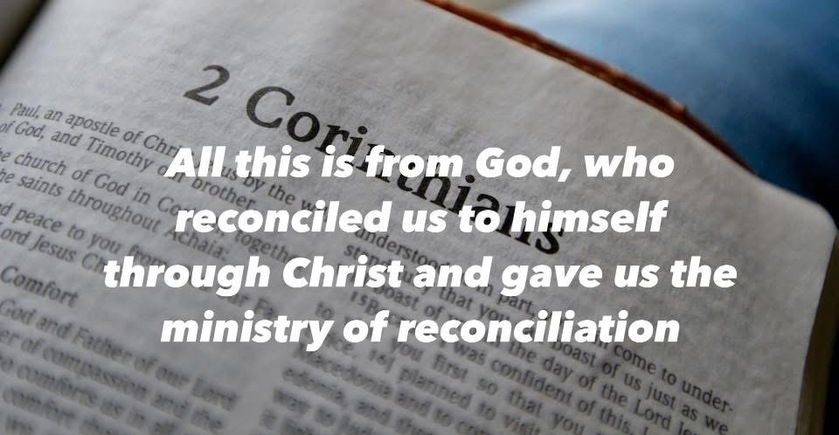Persevering in Proclamation: Paul’s Sermon and Timeless Theological Echoes
Acts 13:13-14
"Now Paul and his companions set sail from Paphos and came to Perga in Pamphylia. And John left them and returned to Jerusalem, but they went on from Perga and came to Antioch in Pisidia. And on the Sabbath day they went into the synagogue and sat down."
It's the Antioch evangelism team on their first mission trip. Paul (formerly Saul), Barnabas, and John Mark had been commissioned by the Holy Spirit through the church in Antioch (Acts 13:1-3). They started in Cyprus, where they proclaimed the word of God, even confronting opposition like the magician Elymas. Now, the team arrives in Perga (a coastal city in modern-day Turkey). John Mark left them there, some scholars suggest this could have been due to fear, homesickness, or disagreement with the mission’s direction, whatever the reason, it later causes tension between Paul and Barnabas (see Acts 15:36-40). So Mark leaves the team, but sometime later Paul reconciles with Mark in his heart asking for his company.
Acts 13:15
After the reading from the Law and the Prophets, the rulers of the synagogue sent a message to them, saying, "Brothers, if you have any word of encouragement for the people, say it."
So, Paul stood up!
And this sets the stage for one of Paul’s most recorded sermons (read Acts 13:16-41), where he shares the gospel by connecting Old Testament promises to Jesus as the fulfillment of God’s salvation plan.
So, what do we know about his sermon?
His audience includes Jews ("men of Israel," "sons of the family of Abraham" ) and God-fearing Gentiles ("you who fear God" ), reflecting the mixed crowd typical of these Diaspora synagogues. His sermon bridges the Old Testament promises to their fulfillment in Jesus. His message represents the realization of the long-awaited Davidic hope positioning Jesus as the promised Savior from David’s line. Paul outlines how God found a man in David who was seeking after his own heart, not a perfect person, but one in whom he knew would follow God's will. God searched for a man who would do his will, and David put God at the center of his life and choose to do His will.
Paul progresses logically from history to application. Paul proclaims the "good news" (v. 32) that God’s promises to the fathers are fulfilled in raising Jesus. He cites three Psalms, which demonstrates Paul’s principle that the Old Testament Scriptures pointed to and culminated in Jesus Christ. The sermon’s climax offers hope: Through Jesus, forgiveness of sins is available, and believers are "freed" (justified) from what the law of Moses could not achieve.
Acts 13:38-39
"Let it be known to you therefore, brothers, that through this man forgiveness of sins is proclaimed to you, and by him everyone who believes is freed from everything from which you could not be freed by the law of Moses."
This introduces the doctrine of justification by faith, where "all that believe are justified" or declared righteous in Christ, surpassing legalistic observance of the traditions and will of men. Overall, the sermon is inclusive, scripturally grounded, and evangelistic, leading to immediate impact for many. Paul's approach respects the audience’s background while revealing a radical fulfillment in Christ Jesus. Paul doesn’t invent a new religion but shows Jesus as the consummation of Israel’s history. The resurrection is the linchpin, proven by witnesses and Scripture, affirming Jesus’ victory over death and sin.
Paul’s sermon is a master-class on how to share the gospel contextually. Start with common ground, point to Jesus as the answer to their deep needs, and back up the gospel claims with scriptural evidence. Offer grace freely and warn lovingly of rejection’s cost.
Acts 13:40-41
"Beware, therefore, lest what is said in the Prophets should come about:
"‘Look, you scoffers, be astounded and perish; for I am doing a work in your days, a work that you will not believe, even if one tells it to you.’"
Paul is relating biblical truths to contemporary issues, emphasizing forgiveness through Christ over self-effort. Many Jews and proselytes followed Paul and Barnabas following this sermon, persuaded to continue in God’s grace (Acts 13:42-43), as evidence of the Holy Spirit’s power in faithful proclamation.
I've always found sermons interesting. Preaching the good news has always been of great interest to me. Early on when I first started walking with the Lord I consumed multitudes of many different sermons by well known theologians. This was before the internet age so I had to read actual books and find writings in places called "libraries". I remember finding an entire collection of all the sermons written by John Wesley. I printed them all out on paper and read them all as bedtime reading. And in fact, it's Wesley's work that inspired me to want to one day publish a Bible commentary of my own.
As for Wesley's sermon style, it was not the most relatable, but it was packed with a lot of good information and helped me to form many of my thoughts on many different theological principles. But mainly what I took away from Wesley was his Arminian emphasis on prevenient grace and free response. Not as a principle that trumps all principles, but it was enlightening and revelatory as I was growing in the faith.
Regarding Paul's sermon here in Acts 13, Wesley sees the sermon as an evangelistic model. He emphasizes its logical progression, scriptural depth, and emphasis on grace over law, making it a cornerstone for understanding justification by faith. This doctrine is central to Wesley’s theology and echoes his teachings (in sermons like "The Law Established Through Faith" ) that faith alone justifies, leading to holiness and good works as fruit, not the root, of salvation.
As a balance, I thought I should probably share what I've learned from some other favorite sermon sources.
John Calvin, in his Commentary on the Acts of the Apostles, provides a detailed exposition of Paul’s sermon in the synagogue at Antioch in Pisidia. Calvin notes that Paul emphasizes God’s free choice and patience despite Israel’s unworthiness, such as enduring their rebellions for forty years. And Calvin points out the irony: Jerusalem, as God’s sanctuary, crucified the Messiah, yet this fulfilled Scripture. Theologically, Calvin stresses God’s sovereignty, and notes that human sin unwittingly advances His divine plans. Calvin emphasizes Scripture’s authority in validating the resurrection, showing God’s eternal plan for a living Savior who brings everlasting blessings, not temporal ones. He views Paul's sermon as exemplifying predestination and grace. God sovereignly fulfills promises, yet calls all to believe, with justification as a gift surpassing the law.
This also resonates with Thomas Aquinas’ doctrine of justification in his well-known writings "Summa Theologica" I-II q.113, where grace infuses faith, remitting sins and making one righteous, not by law’s works but by Christ’s merit. Aquinas often encourages reading Scripture holistically, seeing Christ’s fulfillment in every prophecy. In sharing the gospel, we should emulate Paul by connecting personal stories to God’s grand narrative, offering grace amid our doubts, and trusting providence in our sinful setbacks in the presence of our sin.
I'll always remember fondly that the very first theological work I picked up was Augustine's "City of God". Like Paul, Augustine viewed Scripture as a unified revelation, with the Psalms as prophetic utterances spoken by Christ through David. Augustine frequently interprets the Old Testament christologically, seeing it as fulfilled in Jesus, and he references elements of Acts 13 in his discussions on resurrection, divine sonship, predestination, and salvation by grace. Augustine echoes Paul's view in his own view of salvation history as divine providence, where God elects and guides humanity toward Christ. In De civitate Dei (City of God) and Confessions, he portrays history as unfolding God’s promises, with David as a type of Christ; the obedient king whose line culminates in the eternal Savior.
Augustine’s view of justification is transformative, as in De spiritu et littera (On the Spirit and the Letter):
“What does ‘justified’ mean other than ‘made righteous,’ just as ‘he justifies the ungodly’ means ‘he makes a righteous person out of an ungodly person’?”
Not under law but under grace. It begins with faith and forgiveness but involves ongoing renewal by grace, "faith working through love" (Galatians 5:6), not mere assent. This aligns with the sermon’s freedom from the law but emphasizes process. Justification in Christ Jesus heals sin’s corruption, surpassing Mosaic observance.
And as a final testament, I recall reading from Bonhoeffer that he shared similar views to all these previous views. In his sermon "The Promised Land" (Berlin, March 13, 1932, based on Genesis 32:24–31; 33:10), he describes the "promised land" not as a physical place but as the Christian community where God’s blessings of peace, love, and justice are realized.
(As an aside)
And yes, I made copies of all his available sermons and read them. It's a fascination of mine. Some people like fiction books or maybe biography, but I enjoy reading systematic theology and sermons. This is not to say that I can't appreciate theological themes found in fiction.
Bonhoeffer said:
"There is peace and love and justice in it; the land where there is no more suffering and there are no more tears, because a wonderful Lord rules there…In the Christian church-community, you should find God and your brother and sister, should find your home, should have the promised land."
Echoing Paul’s emphasis on God’s election and covenant with David, fulfilled in Jesus, as a promise extended to all believers. And at the same time Bonhoeffer’s theology of "costly grace" critiques cheap forgiveness while affirming grace’s transformative power, aligning with Paul’s doctrine.
For instance, in his sermon "Forgiveness", (Finkenwalde, November 17, 1935, Matthew 18:21–35), he teaches:
"God remitted all our debt, and we were forgiven. We were free, and all anxiety departed from us…Only by recognizing in penitence God’s mercy for you will you yourself then also be capable of forgiveness…Not seven times, Peter, but seventy-seven times, Jesus says…Forgive without counting—do not torment yourself with the question of how long—endlessly, Peter, endlessly, that is what it means to forgive—and precisely that is what grace is for you."
In his sermon "Ambassadors for Christ" (London, October 22, 1933, 2 Corinthians 5:20), Bonhoeffer urges:
"Be reconciled to God—give God the right to rule over you, and in finding God you will also find your brother and sister and neighbor again; be reconciled to God, and you will also be reconciled with each of them."
All this reflects Paul's theme of justification as relational freedom, beyond legalism. And as a closing thought I want to share Bonhoeffer's calls for repentance and response to grace amid suffering; while remembering he warns of rejecting that grace, as in his emphasis on costly discipleship.
In "Turning Back" (London, November 19, 1933, Repentance Day), he says:
"Christ sits in judgment, which means that grace is the judge, and forgiveness, and love—whoever clings to them has already been acquitted…Come, Judgment Day, we look forward to you with joy, for then we shall see our merciful Lord and clasp his hand, and he will receive us with open arms."
Bonhoeffer’s insights and all the others mentioned here today challenge us to live the gospel’s promises, sharing forgiveness freely and clinging to our resurrection hope in Christ Jesus. In our evangelism efforts, start with God’s faithfulness, as Paul did, and finish offering grace without compromise.
***Just imagine these men meeting up in heaven and sharing notes on the gospel.
Prayer:
Heavenly Father, thank You for Paul’s bold witness and the enduring wisdom of theologians like Wesley, Calvin, Aquinas, Augustine, and Bonhoeffer, who illuminate Your gospel of grace, justification, and resurrection hope. Empower us to share Your promises faithfully, starting from common ground and offering forgiveness freely, amid our own setbacks and sufferings. May we cling to Christ’s costly grace and live as ambassadors of reconciliation.
In Jesus’ Holy name, Amen.




















